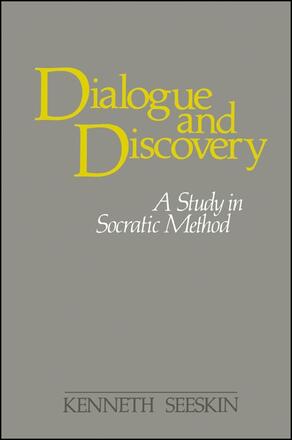
Dialogue and Discovery
A Study in Socratic Method
Alternative formats available from:
Description
This book examines the Socratic method of elenchus, or refutation. Refutation by its very nature is a conflict, which in the hands of Plato becomes high drama. The continuing conversation in which it occurs is more a test of character than of intellect. Dialogue and Discovery shows that, in his conversations, Socrates seeks to define moral qualities—moral essences—with the goal of improving the soul of the respondent.
Ethics underlies epistemology because the discovery of philosophic truth imposes moral demands on the respondent. The recognition that moral qualities such as honesty, humility, and courage are necessary to successful inquiry is the key to the understanding of the Socratic paradox that virtue is knowledge.
The dialogues receiving the most emphasis are the Apology, Gorgias, Protagoras, and Meno.
Kenneth Seeskin is Philip M. and Ethel Klutznick Professor of Jewish Civilization at Northwestern University. His books include Jewish Philosophy in a Secular Age, also published by SUNY Press.
Reviews
"Seeskin's analyses are subtle, well-informed by the secondary literature, and make a contribution to the understanding of the critical dialectic that has guided much of Western thought. I can't think of any recent source that puts together the Socratic philosophy in this elegant and coherent fashion. " — Robert C. Neville
"Dialogue and Discovery is important to the study of the history of philosophy. It is original, relevant, and written in excellent style. " — Robert S. Brumbaugh